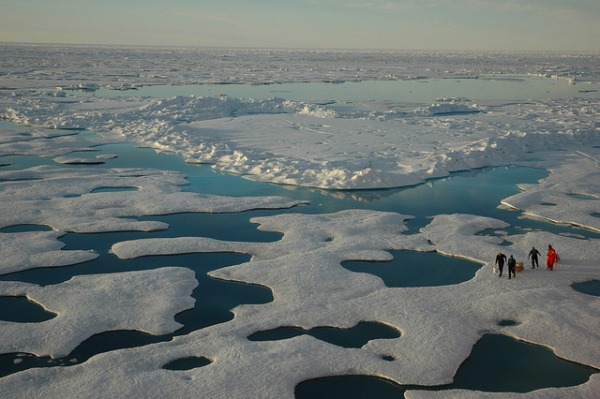NOAA scientists announced on Tuesday that there was less ice in the Arctic this winter than any other in the era of satellite imagery. Satellites also show that the ice started to melt earlier this year and is melting faster than in previous years.
Faster ice melt has been linked to reductions in the fat content of zooplankton that comprise the base of the marine food web. In a setting where fat is critical to survival, this shift has potentially detrimental effects in store for marine mammals and fish populations already facing dramatic environmental changes.
Reduced Arctic sea ice also holds implications for expanding shipping routes and oil and gas exploration, which have their own effects on local human and animal populations.
In these ways, and as the Arctic’s influence on global weather events has shown:
The views and opinions expressed through the MAHB Website are those of the contributing authors and do not necessarily reflect an official position of the MAHB. The MAHB aims to share a range of perspectives and welcomes the discussions that they prompt.What happens in the Arctic does not stay in the Arctic –Jeff Key, NOAA

